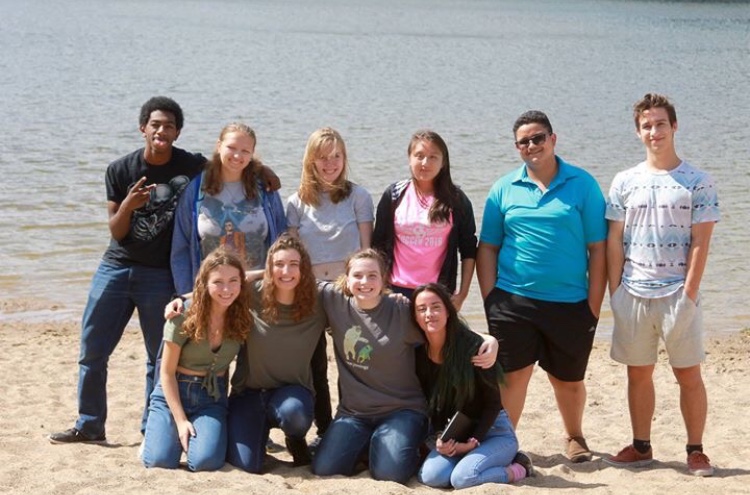What aspiring SES students should know
December 15, 2018
The School of Environmental Studies is a great option for many students seeking something different than the normal high school routine. Applications for the 2019-20 school year are due on December 20th, with tours and open houses well under way. Here are some things you should know about how to succeed at SES and what makes it different- from an SES student.
- SES is a community.
One of the core values of SES is fostering a sense of community and belonging in the classroom. Even seating arrangements are set up to encourage teamwork; as a student, your desk is in a “pod” with ten other students, whom you will be working with most of the time. SES students rarely work alone, however group work at SES is different than your typical group project, and is much more an exchange of ideas. Discussion and teamwork are integral to the life of an SES student, however it isn’t for everyone. Not participating in discussions or data collection means you are hurting the SES community, so you should be willing to work with others and participate.
- SES has a very different daily schedule than many schools.
SES is organized into a block schedule, meaning we only have three, longer classes each day. Your “house” is where you spend most of your time, and is where your desk and pod are. House is essentially a two-three hour super class that groups together three classes; social studies, environmental science, english, as well as any APs you choose to take. Depending on if you’re in Blue House or Rose House, you will either have House in the morning or afternoon. Your other classes are 90 minutes every other day.
- SES is not an “easier” school.
Though many SES students enjoy their work more in comparison to other schools, it is certainly not an easier curriculum. Subjects are tackled with intensity, and is not uncommon to write four pages of scientific analysis in one day. Analysis and critical thinking are essential skills according to SES values, and are thus often expressed in essays or projects. Although, SES students rarely take tests in House, and don’t have finals.
- SES has a much looser structure.
Daily assignments aren’t as common at SES as they are at EHS; in a House class of 80-100 students, checking homework everyday can be impractical. That means when an SES student is given an assignment, they are expected to do it, not for a homework grade, but to contribute to their greater learning. In House, students keep a journal containing all their notes and resources. Though the journal is checked sporadically, the success of the journal as a resource is up to the student. At SES, teachers are a great help, but they aren’t there to constantly check up on your work to make sure you’re getting it done. Developing independent work skills is very important to the success of a student at SES.
SES is an amazing, engaging school, and a majority of students enjoy the curriculum; but in your education, you should always make the choice that is right for you.






